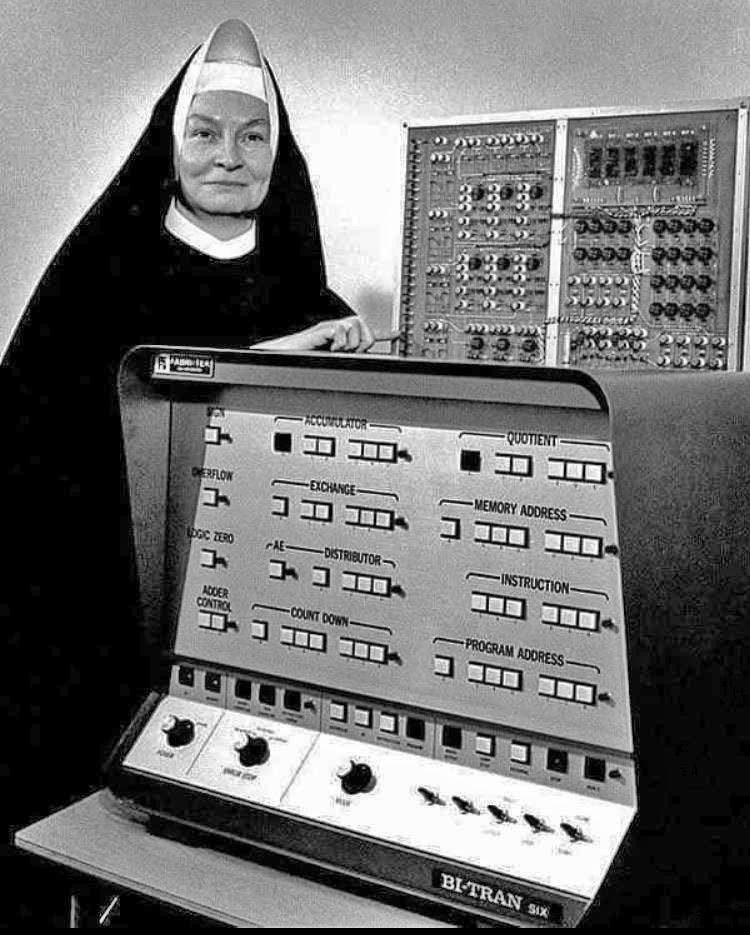June 7, 1965 was a very important day in the history of computer science. Nun Mary Kenneth Keller received one of the first two doctoral degrees in computer science in history. The first, by the University of Washington, was awarded to Irving C. Tang.
Born into a Catholic family of Irish descent, she joined the Congregation of Sisters of Charity of the Blessed Virgin Mary in Dubuque, Iowa, in 1932 (age 19 ). After 8 years as a novice, she took her vows in 1940. After that, she began her academic career in science, earning a bachelor's degree in mathematics in 1943 and a master's degree in mathematics and physics in 1945. .
Thus, when his religious order founded Clarke University in 1964, it became the first university center to offer a degree in computer science in the United States at the forefront of that degree. Mary Kenneth Keller was appointed director of the Department of Technology for two decades, until a few months before her death in 1985.
It was only a few months later that, at the age of 52, he was awarded a doctorate for his thesis "Inductive Inference on Computer Generated Patterns" , focusing on the development of algorithms capable of making an analytical differentiation on the 'algebraic expression.
The programming language she used in the algorithms proposed in her thesis was FORTRAN, although a year earlier she herself had become one of the three creators of another language called to be even more popular than that. : the "Beginners' All-purpose Symbolic Instruction Code", better known as BASIC .
In 1958, the University of Dartmouth had decided to break its rule of accepting only men (in force for 188 years) to allow Keller to enter as a researcher for her Computer Center, where she began collaborating. with John George Kemeny and Thomas Eugene Kurtz. From this collaboration arose the original dialect of BASIC (known as Dartmouth BASIC), of which his male colleagues are often cited as the sole creators.



